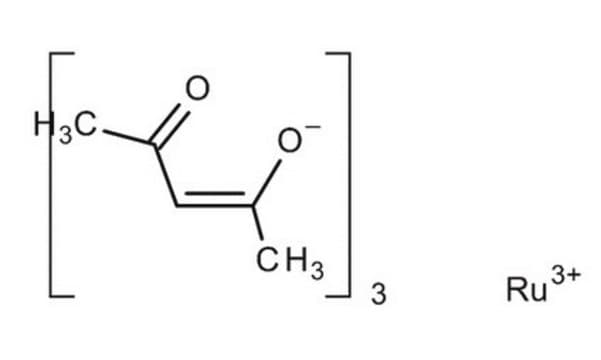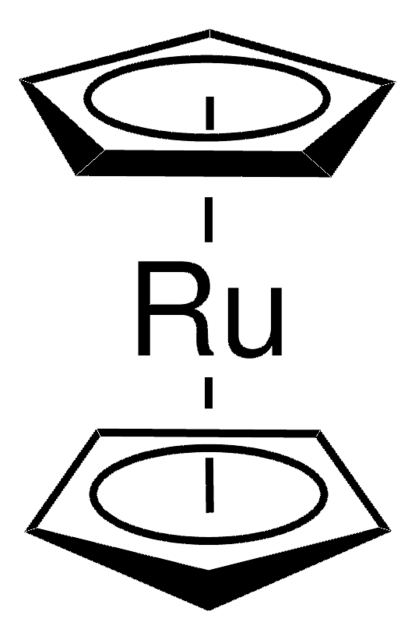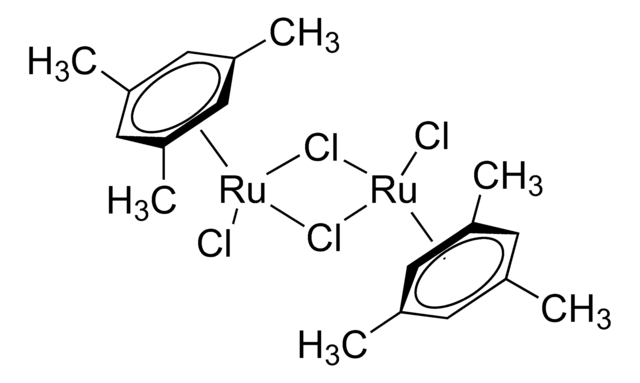282766
Ruthenium(III) acetylacetonate
97%
Sinónimos:
2,4-Pentanedione ruthenium(III) derivative, Ru(acac)3
About This Item
Productos recomendados
Análisis
97%
formulario
solid
idoneidad de la reacción
core: ruthenium
reagent type: catalyst
mp
260 °C (dec.) (lit.)
cadena SMILES
CC(=O)\C=C(\C)O[Ru](O\C(C)=C/C(C)=O)O\C(C)=C/C(C)=O
InChI
1S/3C5H8O2.Ru/c3*1-4(6)3-5(2)7;/h3*3,6H,1-2H3;/q;;;+3/p-3/b3*4-3-;
Clave InChI
RTZYCRSRNSTRGC-LNTINUHCSA-K
¿Está buscando productos similares? Visita Guía de comparación de productos
Descripción general
Aplicación
- As an electrolyte in redox flow batteries. It helps to enhance the voltage efficiency of batteries.
- As a starting material to synthesize homogeneously dispersed Ru nanoparticles for super capacitor applications.
- As a precursor to synthesize ruthenium single atom multifunctional electrocatalyst that exhibits outstanding catalytic performance for zinc-air battery and overall water splitting reaction.
- To fabricate Ru2P anodic catalyst for polymer electrolyte fuel cells. It helps to improve hydrogen oxidation reaction performance.
- As a reliable and stable cathode interfacial layer to significantly improve solar cell efficiency and stability.
Código de clase de almacenamiento
11 - Combustible Solids
Clase de riesgo para el agua (WGK)
WGK 3
Punto de inflamabilidad (°F)
Not applicable
Punto de inflamabilidad (°C)
Not applicable
Equipo de protección personal
dust mask type N95 (US), Eyeshields, Gloves
Certificados de análisis (COA)
Busque Certificados de análisis (COA) introduciendo el número de lote del producto. Los números de lote se encuentran en la etiqueta del producto después de las palabras «Lot» o «Batch»
¿Ya tiene este producto?
Encuentre la documentación para los productos que ha comprado recientemente en la Biblioteca de documentos.
Los clientes también vieron
Nuestro equipo de científicos tiene experiencia en todas las áreas de investigación: Ciencias de la vida, Ciencia de los materiales, Síntesis química, Cromatografía, Analítica y muchas otras.
Póngase en contacto con el Servicio técnico










